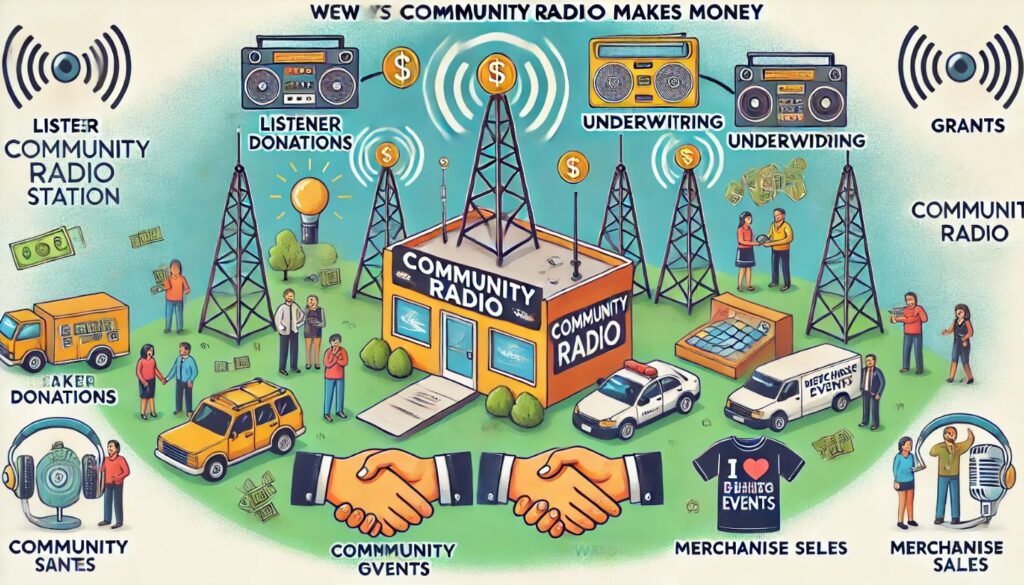Community radio is a vital part of the media landscape, providing a platform for local voices and unique content that you won’t find on mainstream stations. But have you ever wondered how does community radio make money? Unlike commercial radio stations, community radio often operates on a shoestring budget, relying on a mix of funding sources to stay on air. In this blog post, we’ll dive into the various revenue streams that keep community radio stations afloat, from listener donations to grants and beyond.
Table of Contents
Contents

The Importance of Funding for Community Radio
Community radio stations are typically non-profit organizations, which means they don’t generate revenue through traditional advertising like commercial stations. Instead, they rely on a variety of funding sources to cover their operating costs. These costs can include everything from licensing fees and equipment maintenance to salaries for staff and rent for studio space. Without adequate funding, many community radio stations would struggle to survive, making it crucial to understand the different ways they can generate income.
Listener Donations: The Backbone of Community Radio
One of the most significant sources of revenue for community radio stations is listener donations. These contributions can come in the form of one-time gifts, monthly memberships, or annual fundraising drives. Listener donations are essential because they provide a steady stream of income that can be used to cover day-to-day expenses. Many community radio stations hold pledge drives, where they ask listeners to contribute a certain amount of money in exchange for premiums like T-shirts, tote bags, or exclusive access to events.
How Listener Donations Work
During a pledge drive, the station’s DJs and hosts will interrupt regular programming to ask for donations, often sharing personal stories about what the station means to them and the community. These heartfelt appeals can be very effective in encouraging listeners to open their wallets. Additionally, stations may offer incentives like matching gifts, where a generous donor agrees to match every dollar contributed during a specific time period, doubling the impact of each donation.
Grants and Foundation Support
Another crucial funding source for community radio is grants from foundations, government agencies, and other organizations. These grants can be highly competitive, requiring stations to submit detailed proposals outlining how the money will be used and the impact it will have on the community. Grants can cover a wide range of needs, from purchasing new equipment to funding special projects or programs.
Types of Grants Available
There are many different types of grants available to community radio stations, including:
- Operational Grants: These provide general support to help cover everyday expenses.
- Project Grants: These are designated for specific initiatives, such as creating a new show or launching a community outreach program.
- Equipment Grants: These help stations purchase new technology or upgrade existing equipment.
Applying for grants can be a time-consuming process, but the potential payoff makes it well worth the effort. Successful grant applications can result in significant financial support, allowing stations to expand their services and reach more listeners.
Underwriting: A Form of Sponsorship
While traditional advertising is not a primary revenue stream for community radio, many stations do engage in underwriting. Underwriting is a form of sponsorship where businesses or organizations provide financial support in exchange for on-air acknowledgments. These acknowledgments are typically short and informative, adhering to FCC regulations that prevent them from being overly promotional.
How Underwriting Works
An underwriting spot might sound something like this: “Support for this program comes from ABC Grocery, located at 123 Main Street, offering fresh produce and local products. More information at abcgrocery.com.” These spots are a win-win for both the station and the sponsor: the station receives much-needed funds, while the sponsor gains exposure to a dedicated and engaged audience.
Community Events and Fundraisers
Hosting community events and fundraisers is another way community radio stations generate income. These events can range from concerts and festivals to silent auctions and bake sales. By engaging with the community in person, stations can build stronger relationships with their listeners and encourage more support.
Examples of Successful Fundraisers
- Benefit Concerts: Partnering with local musicians and venues to put on a show, with ticket sales going directly to the station.
- Silent Auctions: Gathering donated items from local businesses and auctioning them off to the highest bidder.
- Community Picnics: Organizing a day of food, games, and entertainment, with proceeds from ticket sales and food purchases supporting the station.
These events not only raise money but also raise awareness about the station and its mission, helping to attract new listeners and donors.
Merchandise Sales
Selling merchandise is another effective way for community radio stations to generate revenue. Items like T-shirts, hats, mugs, and tote bags can be sold online or at events, providing both a financial boost and free advertising as supporters wear or use their purchases.
Tips for Successful Merchandise Sales
- Quality Products: Ensure that the items are high-quality and appealing to your audience.
- Branding: Use the station’s logo and branding to create a strong visual identity.
- Promotion: Promote the merchandise through on-air mentions, social media, and the station’s website.
By offering appealing and useful products, stations can create another steady revenue stream while also spreading their brand throughout the community.
Conclusion: A Diverse Funding Strategy
As we’ve explored, there are many ways how does community radio make money. By diversifying their funding sources, community radio stations can ensure a more stable financial future. Listener donations, grants, underwriting, community events, and merchandise sales all play a crucial role in keeping these vital local institutions on the air. By understanding and supporting these efforts, listeners can help ensure that their favorite community radio stations continue to thrive and serve their communities for years to come.
